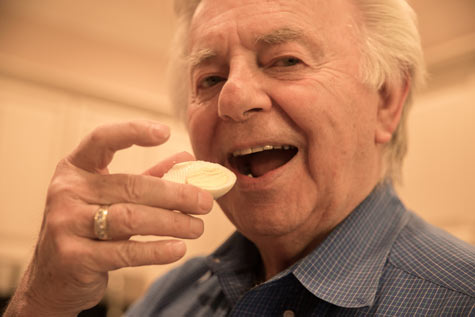
Research shows the benefits of a high protein diet for seniors.
Pass the protein, please! Current research studies are highlighting how a high protein diet helps seniors, notably during occasions of stress, in particular when battling a chronic disease or acute illness, or getting ready for a medical procedure or hospitalization, when protein is digested less effectively. And even when older adults are healthy, protein is paramount to maintaining muscle strength and mass, healthy bones and so much more.
Nonetheless around about 33% of all older adults are not eating sufficient levels of protein, for a number of reasons, such as:
- Taste impairments
- Difficulties with swallowing
- Financial limitations
- Decreased appetite
- Dental problems
And, the less active lifestyle that numerous older adults lead even further compounds the damaging impacts of inadequate protein consumption, including:
- Worsening mobility
- Decreased muscle mass and strength
- Lengthier recuperation times when ill
- Eventual loss in independence
The good news is, folks who do consume recommended levels of protein are more likely to continue to maintain independent functionality with tasks like getting dressed and looking after other personal hygiene needs, walking, and climbing stairs. According to Wayne Campbell, professor of nutrition science at Purdue University, “While eating an adequate amount of protein is not going to prevent age-associated loss of muscle altogether, not eating enough protein can be an exacerbating factor that causes older adults to lose muscle faster.”
The studies show that protein should be acquired from natural food sources, versus through protein shakes. Suggested protein levels are generally .8 grams of protein per 2.2 pounds of body weight every day; so, for a 120-pound woman, that equates to 48 grams of protein/day. However, for anyone going through the stressors cited above, the guideline increases to 1.2 – 1.5 grams of protein per 2.2 pounds of body weight.
These protein-rich foods are excellent options:
- Chicken (28 grams of protein per 3-ounce serving)
- Yogurt (18 grams of protein per 6-ounce serving)
- Cottage cheese (14 grams of protein per ½-cup serving)
- Lentils (9 grams of protein per cup)
- Milk (8 grams of protein per cup)
Of course, be sure to consult with an older adult’s doctor prior to making any dietary changes. Once a dietary plan is authorized, let Compassionate Nursing Services provide support by planning and cooking nutritious, appetizing meals, picking up food and ensuring the pantry and refrigerator are stocked with nourishing meal and snack options, providing encouragement to maintain an energetic lifestyle, and so much more – all adding to better health and wellness.
Reach out to us any time at 314-432-4312 to request a free-of-charge in-home consultation with our professional care team to learn more about the best St. Louis home care agency for cherished older adults.
